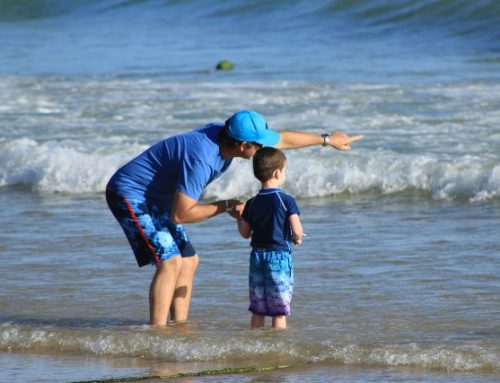If there’s one thing I’ve learned in my years of parenting it’s that you need to be wary of parenting advice. In many ways, parenting is like the last bastion of a pioneer lifestyle. No matter how many people have walked similar paths, they’ve never walked yours. As parents, we each stand before an uncharted trail and must figure out, on our own, how to make our way through.
Of course, if you’re looking for advice, there are plenty of markers along the way. The problem is that they all point in totally different directions. For every step, there’s a journeyer who will tell you to use either cloth diapers or plastic; to stick to breast milk or use formula; to avoid vaccinations or get every one; to make your own organic baby food or buy prepared; to train your kids to sleep in their own bed or let them sleep in yours; to use a pacifier or let them suck their thumbs.
Bigger kids, bigger questions
It doesn’t get easier as they got older. With each passing year, parents are still assailed with a host of contradictory recommendations. There are parents who strongly believe in—and others who just as strongly disagree with—the use of electronics, punishments, allowance. Some parents want their kids to finish whatever they start; others don’t want to force their kids to engage in activities that don’t interest them. Some want to protect their kids from negative experiences; others think difficulty strengthens resilience.
And then they hit their teens. Can they use public transportation alone? Are piercings and/or tattoos allowed? Can they have “sleepovers” with the opposite sex? Will you give them room to explore their own sexuality, even if it challenges your beliefs? What are the rules around drinking and drugs? Can they move away for college or university? Should they find part-time jobs or focus on their schoolwork?
Please let me assure you: I have strong opinions on the “right” answer for each of those questions and more. But I’m willing to concede that what’s right for my family might not be what’s right for yours. Like I said at the start, we all need to find our own way. Which is why I have no tactical advice to offer. I do, however, have some practical advice I hope will resonate with you.
Practical, not tactical
It may sound simple, but my primary rule of parenting is “Do no harm.” Let’s face it: raising kids is not all rainbows and sunshine. We live in close quarters. We get on each other’s nerves. And we know, unerringly, how to hurt each other.
My goal in raising my kids is to avoid causing that hurt. I admit I haven’t been entirely successful. Over the years, I have said cruel things. I have occasionally bullied. I’ve been distracted and insensitive. I’ve laughed inappropriately.
I’ve also apologized. In the moment, if I realized my transgression in time; later on, if I didn’t. Critically, I’ve also forgiven in turn.
For me and my husband—and I can only talk for us—our long-term relationship with our children is infinitely more important than any short-term conflicts we may face. We measure our parenting decisions on that scale. That makes the earlier-year decisions entirely personal ones. Your kids will likely never be harmed—and your relationships will likely never suffer—over your decision to use plastic or cloth diapers. It’s when they get older that you need to walk more carefully. For us, that means consulting them on their desires, beliefs, and priorities.
Will we overrule them occasionally? Yes, we’re their parents. We’ve lived longer and know more. But we’ve tried not to overrule them arbitrarily or without explanation. And we remain open to changing our opinions if, after discussion, we realize their approach makes better sense than ours. That’s been particularly helpful as they’ve gotten older. It means we get to negotiate solutions to issues rather than fighting and potentially alienating each other. It means my husband and I are privileged to learn from our children on a regular basis. And, because they know we’re flexible and non-arbitrary, it means our children are more inclined to ask for—and accept—our advice, meaning we all learn from one another.
It’s a confusing landscape we’re wandering, as parents. There’s tons of opportunity for a misstep. My advice, if you’re at all interested, is to trust yourself, trust each other, and hold hands as you forge your own path. It may end up being messy and include some unexpected switchbacks, but optimally you’ll all arrive at the end together.





Excellent!!
Lovingly concise!
Thanks Weslie!
Thankyou again, Ladies!
My son’s now 40….it’s never too late to acknowledge the less successful areas… and apologise.
Time to examine, forgive myself and undo some of the early damage I passed on to my boy – as 2 mature adults.
So true, Kara! When the aim is a lifelong relationship, it really is never too late. XO